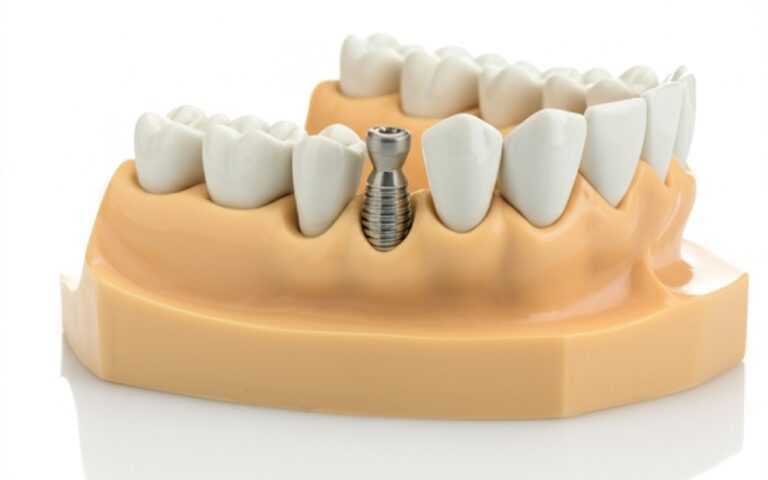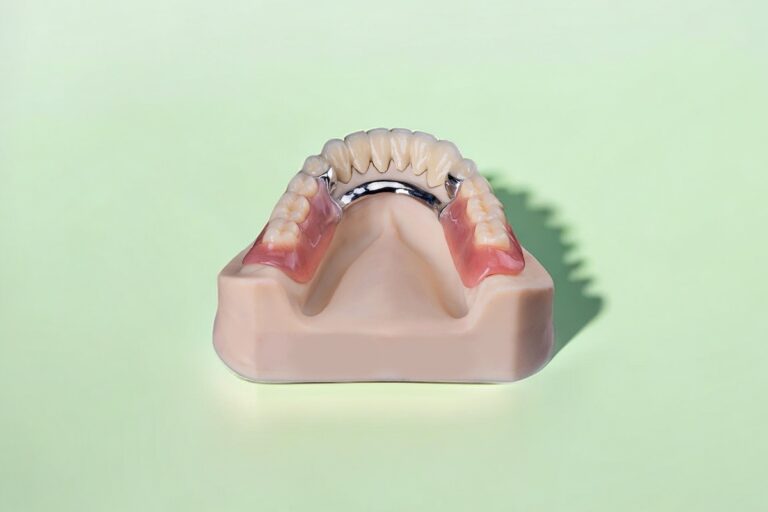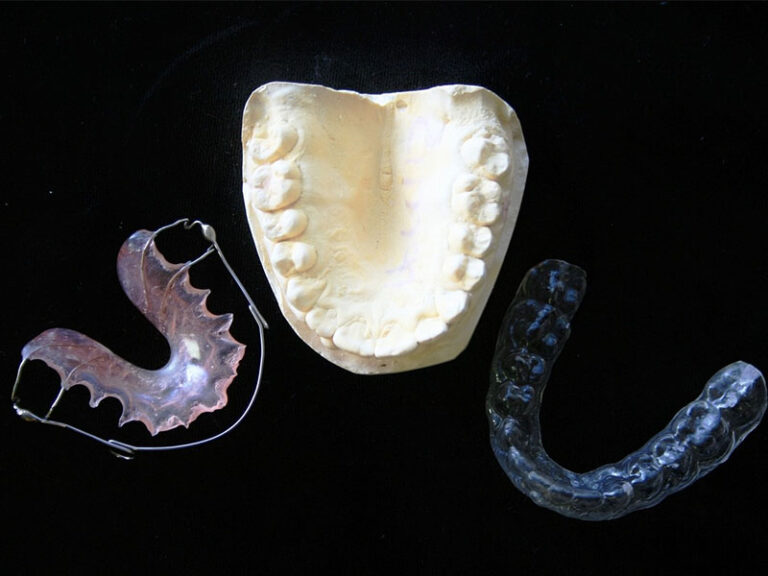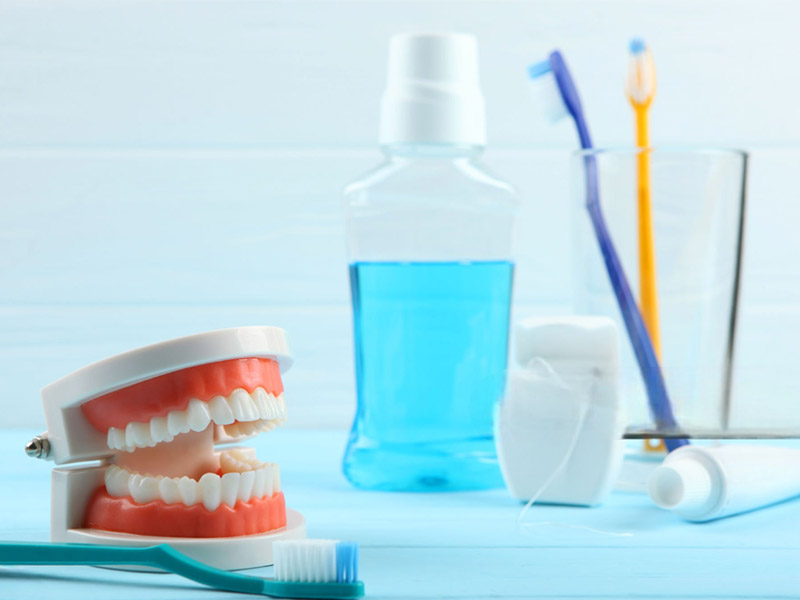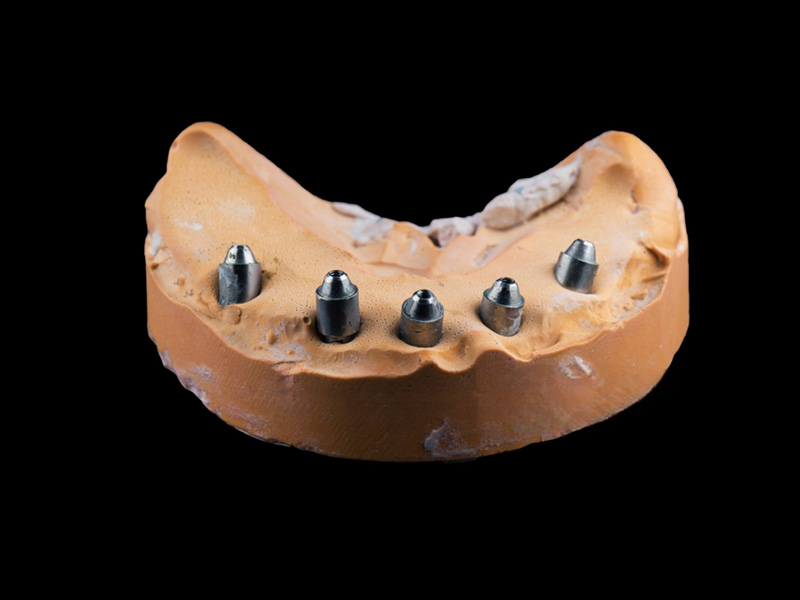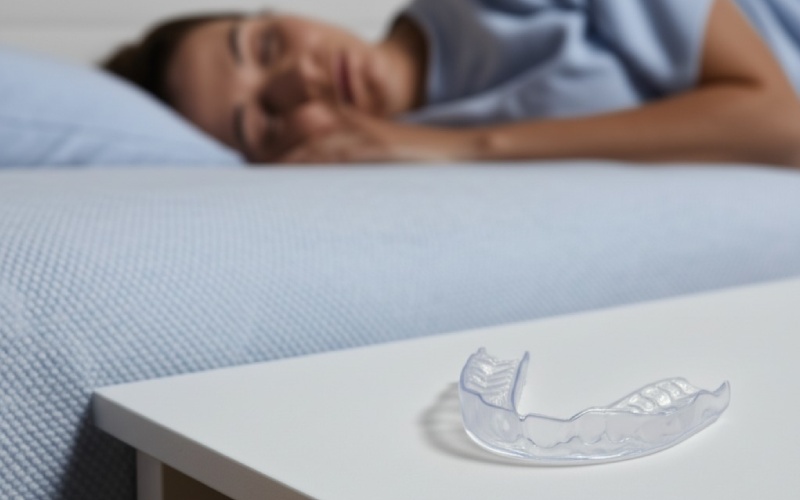
Night Guard Materials Explained: Choosing the Best Option for Bruxism, TMJ & More
That dull ache in your jaw when you wake up. The headache that just won’t go away. Or maybe your partner told you that you grind your teeth at night. If any of that sounds familiar, you’re probably dealing with bruxism—that’s what doctors call teeth grinding and clenching—and you’re not the only one.
Lots of people have this problem, and stress is a big cause. It can really mess up your teeth and mouth. So, what do you do about it? The most common and helpful fix is wearing a night guard. But once you start looking, you see all these choices. Hard, soft, in-between, made just for you, boil-and-bite… honestly, it can get confusing.
Don’t worry. You’re in the right place. This guide will help you figure out the basics of night guards. We’ll explain what they’re made out of, why that matters, and how to pick the one that works best for you. We want to help you go from confused and worried to clear and feeling better.
Table of Contents
Night Guards 101: Custom vs. Store-Bought
Before we talk about what night guards are made of, let’s talk about how you get one. There are two main types you can buy, and the way you get one really changes how it fits, how comfy it is, and how well it works.
Custom-Fit Night Guards (From the Dentist)
A custom night guard is made just for you by a dentist. Most dentists say this is the best way to stop bruxism and help TMJ problems.
- How It Works: First, you visit your dentist. They make a mold of your teeth, either with putty or a scanner. That mold goes to a special lab, where experts make a guard that fits your mouth perfectly. It’s like having a suit made for you instead of grabbing one off the rack.
- Pros: It fits your teeth really well. It clicks in and stays there. It’s comfy, and you’ll probably actually wear it. Because it’s made from good, strong stuff, it lasts a lot longer and does its job better.
- Cons: Two main issues: price and how long it takes. A custom guard can cost anywhere from $300 to $800 (sometimes more), and it takes a week or two for the lab to make it. But, check your dental insurance—a lot of plans help pay for it.
Store-Bought (OTC) Night Guards
You can buy these at many stores or online. They’re easier to get but have some downsides.
1. Boil-and-Bite Night Guards
This is the most popular kind of store-bought guard. You put it in hot water, then bite down so it kind of shapes to your teeth.
- Pros: They’re cheap (usually $20 to $50), and you can have one today.
- Cons: They don’t fit as well as a dentist-made guard. They often feel big or awkward, and might wake you up or make you gag. The soft stuff they’re made from can get chewed up fast if you grind hard. Some studies say a squishy guard can even make some folks clench more.
2. Ready-Made (One-Size-Fits-All) Guards
These are the cheapest out there and come in a basic shape that’s supposed to fit everyone.
- Pros: They cost the least.
- Cons: Let’s be honest—most dentists think these are a waste. The fit is usually really bad, making them super uncomfortable, and they barely work. They might even make your jaw problems worse.
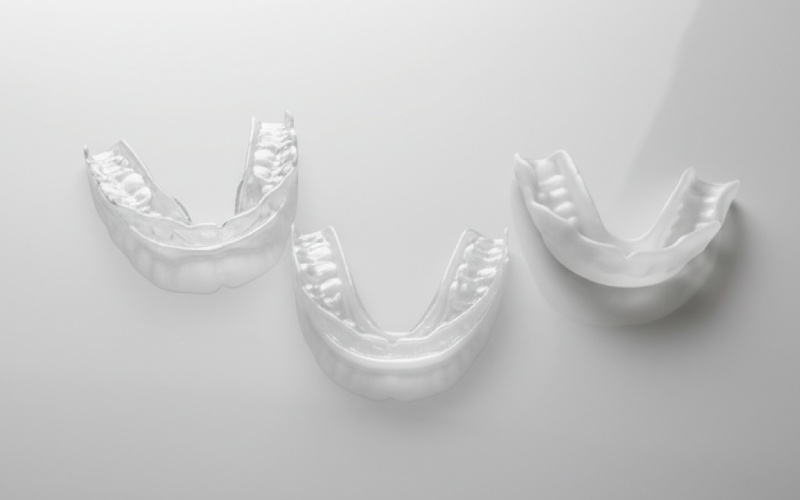
Night Guard Materials: The Main Types, The Good and The Bad
Now for the main event: what is your night guard made from? This is the most important thing for comfort, how long it lasts, and how well it works. Let’s dig into the three big options.
Hard Acrylic (Stiff Night Guards)
When you think “hard night guard,” think sturdy and solid. These are usually made from clear, strong plastic. A custom-fitted hard guard is a carefully made tool for top protection.
- Traits: This kind is solid and doesn’t bend. It puts a tough wall between your top and bottom teeth.
- Pros:
- Lasts the Longest: This is the best for people who really grind. A hard acrylic guard can take serious abuse and can stick around for 3 to 10 years if you treat it well.
- Great for TMJ: If you have jaw joint problems (TMJ), a hard guard (sometimes called a splint) often works best. It helps your jaw muscles relax and keeps your jaw steady.
- Stops Teeth From Moving: Because it’s stiff, it keeps your teeth from drifting over time.
- Cons:
- Takes Time to Get Used To: To be real, it can feel weird at first. The stiffness is something you have to get used to.
- More Expensive: Because of the better stuff and custom work, these are the priciest type.
- Best For:
- Really Bad Grinding: If you’ve ground down your teeth or ruined old guards, this is what you need.
- Major TMJ Problems: Jaw pain, clicking, popping or locking? This is often your best bet.
- Want It to Last: If you see a guard as a long-term thing to protect crowns or fillings, go hard.
Soft Thermoplastic (Flexible Night Guards)
Soft guards are all about comfort. They use bendy, rubber-like plastic, often the same stuff as sports mouthguards, but usually thinner.
- Traits: This kind is bendy and squishy, which makes it feel soft in your mouth.
- Pros:
- Super Comfortable: The soft material is easy to get used to. You might not even notice it’s there—great for first-time users.
- Less Money: They usually cost less than hard or combo guards.
- Cons:
- Wears Out Fast: This is their biggest weakness. If you grind a lot, you can wear through a soft guard in half a year to a year.
- Can Make Some People Clench More: Some people chew on a soft guard like a toy without even thinking about it.
- Not for Bad TMJ: A soft guard doesn’t give your jaw the stable surface you need if your jaw joint is really acting up.
- Best For:
- Light Grinders: If you only grind or clench a little, a soft guard does the job.
- First-Timers: Nervous about wearing something at night? Try this one first.
- Comfort Above All: If nothing else matters but comfort, this is your pick.
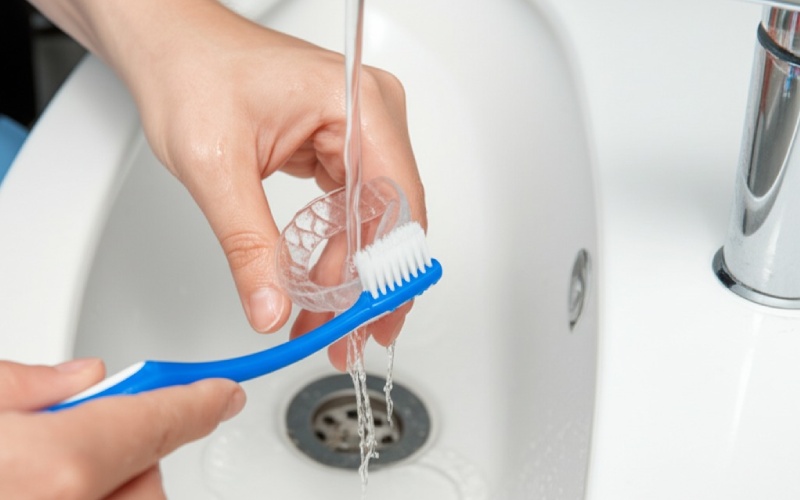
Dual-Laminate / Hybrid (Soft Inside, Hard Outside)
What if you want some comfort and some strength? That’s where hybrid guards come in. You get a soft inside against your teeth with a hard outside to take the hits.
- Traits: Made from two layers pressed together—a soft inside next to your teeth, hard plastic on the outside.
- Pros:
- Good Mix of Comfort and Toughness: Feels comfy, but also strong enough for real grinders.
- Works Well: The hard outside stops wear and lets your jaw slide around without chewing up the guard.
- No Chew Toy Effect: The stiff shell helps stop the temptation to chew on it.
- Cons:
- A Bit Thicker: Having two layers makes it a tad bulkier, but a good fit helps.
- Costs In-Between: Usually not as costly as hard guards, more than soft guards.
- Best For:
- Medium to Bad Grinding: If you grind a lot but can’t stand the feel of a full hard guard, try this.
- Comfort Lovers Who Need Protection: Didn’t like a hard guard? This balances comfort and strength.
- Not Sure What to Pick: If you can’t decide, hybrids are a safe bet.
How To Pick the Right Night Guard
So, how do you choose? Your dentist should help, but here are the main things to consider:
- How Bad is Your Grinding? Be honest—with your dentist and yourself. Light clenching? Heavy grinding? If you grind a lot, you need something that won’t fall apart fast.
- TMJ Problems? If you have jaw pain, headaches, or noises, a hard guard usually helps the most.
- How Much Does Comfort Matter? If you hate sleeping with something in your mouth, a soft or hybrid guard might make you more likely to actually use it.
- How Long Do You Want It to Last? Hard guards can go 5 years or more. Hybrids 2-5 years. Soft guards, sometimes less than a year. Store-bought? Sometimes just months.
- How Much Do You Want to Spend? Custom guards cost more at first, but because they last longer, they might actually save you money long-term compared to buying cheap, short-lasting ones again and again.
Who Should Use Night Guards?
Night guards aren’t just hunks of plastic. They really do fix and prevent real problems.
- Bruxism (Grinding and Clenching): This is the main reason people get guards. They block your teeth from grinding and protect the enamel, stopping cracks and sore teeth. They also help your jaw muscles relax, making you less sore in the morning.
- TMJ Problems: For people with jaw pain, a hard guard made just for you can really help. It keeps the jaw in a better position and supports the joints so they feel less tired and painful.
- Protect Dental Work: If you’ve had crowns or veneers, grinding can break them. Night guards help make sure all that expensive dental work lasts.
- Stress-Related Clenching: We all get stressed. When stress hits, you might clench without thinking. A guard is a buffer, so your teeth and jaw don’t take the stress.
A Side Note: Don’t Use a Sports Mouthguard for Sleep Sports mouthguards are thick and meant for taking punches, not grinding at night. Night guards are thinner and made for regular grinding. Don’t swap them.
Taking Care of Your Night Guard
You paid good money for your guard. Take care of it and it’ll last!
- Clean It Every Day: When you wake up, rinse it with cool water. Brush it with a soft toothbrush and gentle soap. Don’t use toothpaste (it scratches). Never put it in hot water—it can bend or change shape.
- Store It Right: Always put your guard in its case. That keeps it safe from germs, pets, and damage. Make sure your container has holes so the guard can dry.
- Know When to Get a New One: Watch for cracks or spots you’ve chewed through. If it feels loose or starts to hurt, it’s probably time for a new one. See your dentist for a check-up.
Last Thoughts: Look After Your Smile
Night guards might seem complicated, but really, it comes down to picking the right type for you. Soft ones are best for comfort but wear out sooner. Hard and hybrid guards are stronger, making them worth it for heavy grinders or if you have jaw problems.
Store-bought guards are cheap but almost never as good as one your dentist makes. A bad-fitting guard can even make things worse.
So, step one: talk to your dentist. They’ll figure out what’s making your jaw hurt or your teeth grind, and set you up with the best guard for you. It’s not just a piece of plastic. It’s a way to save your teeth, avoid pain, and help you get real rest at night.


